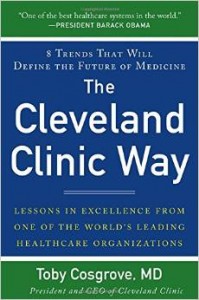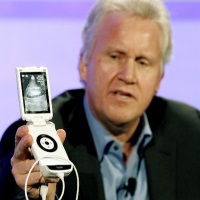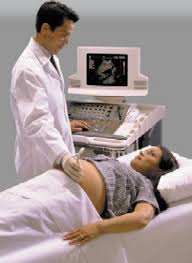May, 2014
- The mony in private HIEs – payers reject public HIEs
- Ultrasound sales are hot. Other modality sales languish but Ultrasound continues its rapid growth.
The U.S. ultrasound market will grow to $1.88 billion by 2018, representing an annual rate of growth of 5.8 percent
- GE has strong year over year growth, expects more in 2014
Driven by growth from the emerging markets and gains from cost cutbacks, profits from GE 's healthcare segment have risen strongly in the last few years.
- Hospitals’ Race to Employ Physicians
- Hospital integration with Physicians – a how to
Hospital-physician alignment arrangements are becoming an increasingly sought-after integration model as health organizations are redesigning their approaches to care in the pay-for-performance environment.
- Dallas’ Parkland Hospital builds a 2.5 million-square-foot high tech facility
- Cleveland Clinic’s CEO Toby Cosgrove writes a book – if you sell there you must read this
- Point-of-Care Ultrasound – explosive growth but needs experienced sonographer to be effective
- Swedish Covenant Hospital (Chicago) Starts $8M Women’s Health Project
- Venders want to be seen as partners to hospitals but continue to act as predators – Kaiser respond’s to Medtronic’s lofty goals
Medical device firms' success in the future will depend on how successfully their customers manage patients and costs. Venders are trying to transform into partners instead of just sellers. Medtronic’s CEO, for example, wants to become a top medtech solutions partner. What does a Kaiser Permanente executive think of that lofty goal? “Medtronic’s reluctance to release pacemaker data to patients does not align with our values,” said Chief Medical Information Officer and Assistant Medical Director John Mattison.
- U.S. Cardiac Assist Device Market Will Grow to $1.5 Billion By 2022
- GE’s line of Point of Care Ultrasound
- 10 Companies Transforming Healthcare
- Medical technology can keep costs down
Advanced medical devices are more often the solution when it comes to health-care costs, helping people live longer, preventing hospitalizations and absenteeism, and keeping patients out of nursing homes.
- Video: How sales prevention can actually increase sales and business profits
- Reimbursment or lack of will drive all future MedTech innovation
- Don’t purchase an Ultrasound system that doesn’t support DICOM structured reporting
"Implementing ultrasound DICOM structured reporting tools yields a significant improvement in dictation times over conventional reporting methods, according to a study presented on Friday at the Society for Imaging Informatics in Medicine (SIIM) meeting. Using DICOM structured reports from ultrasound systems significantly reduces dictation time, representing potential time savings of nearly seven days a year for the institution, said presenter Dr. Steven Horii from the University of Pennsylvania Health System."
- What’s a Sales Coach, and Why Do You Need One?
- 17 Latest CEO Moves in Hospitals, Health Systems
- DR Tomosynthesis is starting to get clinical traction
- How to recruit Physicians like the big hospitals
- Samsung looks to aquire Nuance expanding its presence in healthcare
- How Hospitals Should Handle the Rise in Commercial Audits
- Letting Community Hospitals Die Isn’t an Option
- Medical device tax survives latest repeal effort
- Goldfish have a longer attention span than prospects – does your sales story interest prospects?
- Priceline for healthcare? Medibid seeks to make that possible
- Global market for Medical Ultrasound Equipment is projected to reach $7.7 billion by 2020
- Straight Talk From the PACSman: Ignoring the obvious
- FDA is killing innovation and with it the Medical Device Industry
Nearly 60% of Firms with 510(k) Submissions Got FDA's Refuse-to-Accept Letters in 2013






